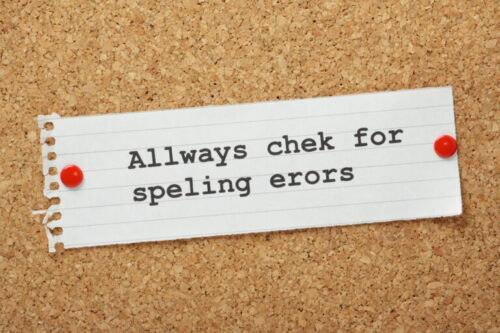While the phrase ‘if at first you don’t succeed, try, try, try again’ may not apply to activities such as skydiving, it certainly is the case when learning a language.
My love-hate relationship with the Russian language started when I picked it up at university in 2014. When I went out to St Petersburg on my year abroad, I learnt a lot of things the hard way; from getting on the wrong bus and missing an appointment, to being shouted at by various babushki (Russian grannies) for not speaking clearly enough or being laughed at by friends for sharing a cupcake recipe that had flies in (muha) instead of flour (muka).

Issy surviving a -16°C winter in St Petersburg
Making mistakes is an important part of learning a language, English included. Mistakes can’t be avoided, and they shouldn’t be. If anything, they should be encouraged. Why? Because you can learn from them and then minimise your chances of repeating them, thus improving your overall ability to communicate well in the language you are trying to learn. Here are a few reasons why mistakes are actually a good thing when learning English:
1. You can widen and improve your vocabulary
At the start of my year abroad in Russia, I was as quiet as a mouse. I was so terrified of making mistakes, that I barely spoke. I soon realised that my language wasn’t improving because I was sticking to my comfortable set of 100 words and phrases. It’s the same when learning English as a second language: you have to push the boat out there, risk making mistakes when saying something more complicated in order to be corrected, learn from it and be able to say it correctly and more confidently the next time.
2. You are more likely to remember how to say something correctly by making a mistake than by simply reading some information.
Trust me, it’s science! An increased amount of brain activity immediately after making a mistake (especially an embarrassing one!) helps your brain to react more cautiously the next time you are in a similar situation. Research conducted by Jo Boaler, a British education author, suggests that we should value mistakes rather than regarding them as failures because when we think about why something is incorrect or hasn’t gone to plan, ‘new synaptic connections are sparked that actually cause the brain to grow’ (Boaler, Ability in Mathematics, 2013). So, the more mistakes you make, the bigger your brain gets…! Or something like that 🙈
3. Embracing mistakes means that you can reduce the amount of stress you place on yourself.
Imagine you are relocating to the UK for work and your first language isn’t English. You have 101 things on your To-do list: documents, settling into a new job and community, ordering furniture, finding your kids a school, making friends etc. That’s quite a stressful task (major understatement!) – so why should you add even more stress to that by striving to speak perfect English and not make any mistakes? Communication, not perfection, is key when setting up in a new country and establishing new relationships. Go easy on yourself and remember that you are only able to have this conversation with Bob Smith or Sally Jones because you have bothered to learn English! I wonder what the average English person’s Spanish, Polish, Arabic or Singhalese is like? I imagine not as good as your English, if it isn’t non-existent….
4. Making mistakes can lead to discoveries and improve your cultural understanding of the language.
I’ll never forget the time that I discovered that the word ‘eggs’ in Russian is also a slang word for – oddly enough – a certain male part of the body. Although I was able to have a good laugh about it with friends, it did prompt me to read a book on Russian slang and from then on ask my Russian friends more questions about words or phrases I kept hearing. There are certain things that they just don’t teach you in textbooks! But it’s about having the right attitude; learn from your mistakes by asking questions, jot down the right way to say something, get an explanation and don’t believe everything you’re told – you don’t want to end up in an Emma Raducanu-style situation!
5. More mistakes = more life experience
Many of my funny stories (not that I have a collection or anything…) come from misunderstandings and embarrassing mistakes. I won’t go into the details of how I once agreed to being put on a drip because I pretended to know what the Russian doctor was talking about. My mum was not so appreciative of the selfie I sent her from my Soviet-style hospital bed, captioned: don’t worry, Mum, I’ve only got tonsilitis!
So, don’t beat yourself up when you make a mistake or slip up in a work meeting with your colleagues, for example. Learn from it and get it right the next time around for that all-important pitch to your prospective client. See your mistakes as a challenge to be solved and an opportunity for growth. And don’t forget, learning English as a second language takes time. Even recently I told someone that I was part of a street gang (banda) in Russian, rather than a music band (groopa), so don’t worry, it’s all part of the fun of the language learning journey. If you want to improve your English and get feedback on some of the mistakes you are making in English in a fun and safe environment, why not book a one-to-one lesson with Rob right now?

